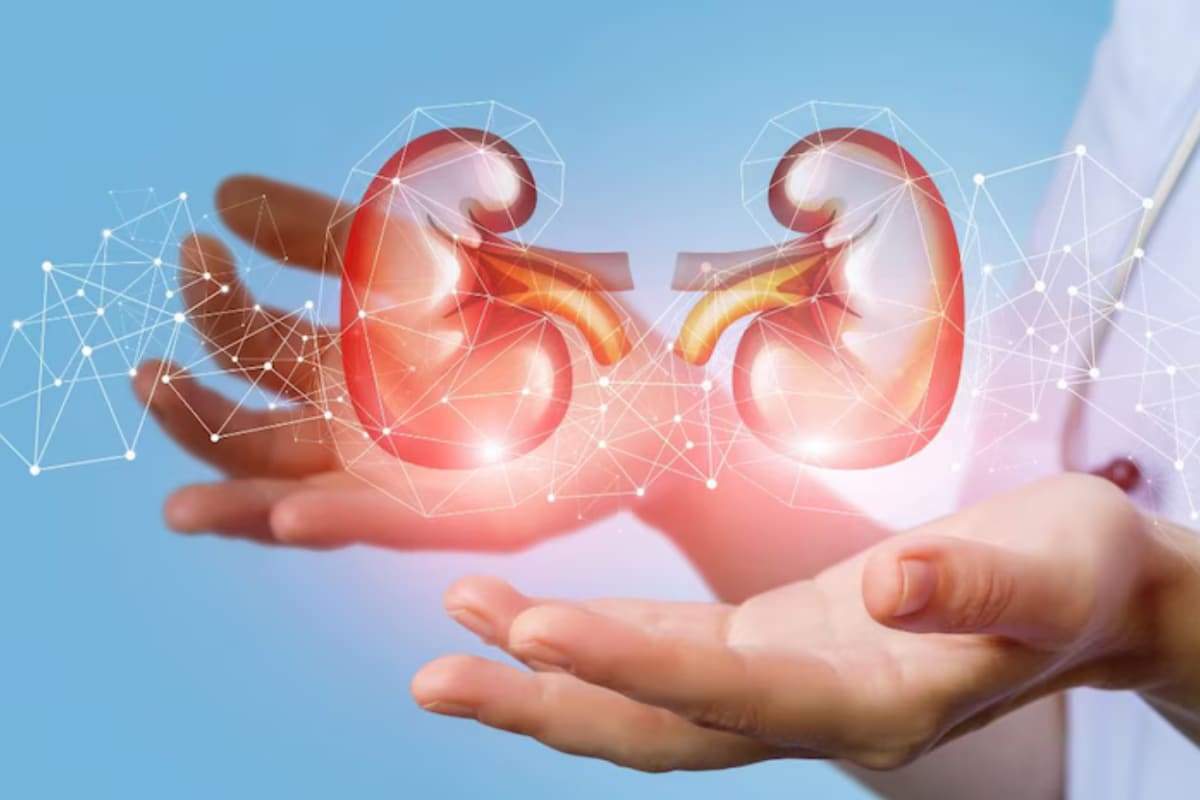Lifestyle
Men Overlook Protein in Urine: A Key Indicator of Kidney Damage

Men often prioritize physical fitness and strength, yet they frequently overlook a critical aspect of their health: kidney function. An alarming sign of potential kidney damage is the presence of protein in the urine, a condition known as proteinuria. This often asymptomatic condition can indicate serious underlying health issues if not addressed promptly.
Dr. Manish Jain, Senior Director of Nephrology at Medanta in Gurugram, emphasizes the importance of being aware of kidney health. The kidneys play a pivotal role in filtering waste and excess fluid from the blood, regulating blood pressure, and maintaining electrolyte balance. The glomeruli, specialized filtering units within the kidneys, normally prevent large molecules like proteins from entering the urine.
Understanding Proteinuria and Its Implications
Proteinuria occurs when the glomeruli are damaged, allowing protein to leak into the urine. This condition is often referred to as a “silent” sign of kidney disease because it typically does not present noticeable symptoms in its early stages. Persistent protein elevation is concerning, as it can lead to more serious health issues over time.
As kidney damage progresses, men may experience symptoms such as swelling in the ankles and feet, fatigue, foamy urine, and frequent urination, especially at night. Recognizing these signs early is crucial for effective intervention.
Why Men Are at Greater Risk
Several factors contribute to men being more vulnerable to kidney damage and proteinuria.
First, high blood pressure is more prevalent among men, particularly at younger ages. Uncontrolled hypertension is a leading cause of kidney damage. Additionally, men are at a higher risk of developing type 2 diabetes, another significant contributor to kidney disease. Chronic high blood sugar levels can cause lasting harm to the kidneys.
Another concern is benign prostatic hyperplasia (BPH), a common condition in older men that can obstruct urine flow. This obstruction increases pressure in the kidneys, leading to potential damage. Lifestyle choices also play a role; men often engage in habits that adversely affect kidney health, such as smoking, excessive alcohol consumption, and diets high in processed foods and red meats.
Ignoring early symptoms can delay diagnosis and treatment, potentially leading to severe health consequences.
The Importance of Regular Check-ups
The most effective way to detect proteinuria is through a simple urine test, typically included in a routine physical examination. If protein is found, further testing may be required, such as a spot urine protein-to-creatinine ratio, 24-hour urine collection, or blood tests to evaluate kidney function.
Men can take proactive measures to safeguard their kidney health and prevent proteinuria. Managing blood pressure and blood sugar levels is critical. Those diagnosed with hypertension or diabetes should work closely with healthcare professionals to ensure these conditions are well-controlled through medication, diet, and exercise.
Maintaining a healthy weight is also essential, as obesity increases the risk of hypertension and diabetes. A balanced diet rich in fruits, vegetables, whole grains, and lean proteins can significantly contribute to overall kidney health.
Staying hydrated by drinking sufficient water throughout the day supports kidney function. Limiting alcohol intake is vital, as excessive consumption can harm the kidneys. Furthermore, quitting smoking is crucial, given that smoking damages blood vessels, including those in the kidneys. It is also advisable to avoid the overuse of nonsteroidal anti-inflammatory drugs (NSAIDs), which can adversely affect kidney function.
Scheduling annual physical examinations, including urine tests to screen for proteinuria, can facilitate early detection and intervention.
In summary, proteinuria serves as a subtle yet significant warning sign of potential kidney damage that many men may neglect. By understanding the associated risks, prioritizing regular health screenings, and adopting healthier lifestyle habits, men can take essential steps to protect their kidney health and prevent serious complications. Prioritizing kidney health is vital for a longer, healthier life.
-

 World4 months ago
World4 months agoSBI Announces QIP Floor Price at ₹811.05 Per Share
-

 Lifestyle4 months ago
Lifestyle4 months agoCept Unveils ₹3.1 Crore Urban Mobility Plan for Sustainable Growth
-

 Science3 months ago
Science3 months agoNew Blood Group Discovered in South Indian Woman at Rotary Centre
-

 World4 months ago
World4 months agoTorrential Rains Cause Flash Flooding in New York and New Jersey
-

 Sports3 months ago
Sports3 months agoBroad Advocates for Bowling Change Ahead of Final Test Against India
-

 Top Stories4 months ago
Top Stories4 months agoKonkani Cultural Organisation to Host Pearl Jubilee in Abu Dhabi
-

 Science4 months ago
Science4 months agoNothing Headphone 1 Review: A Bold Contender in Audio Design
-

 Top Stories4 months ago
Top Stories4 months agoAir India Crash Investigation Highlights Boeing Fuel Switch Concerns
-

 Sports3 months ago
Sports3 months agoCristian Totti Retires at 19: Pressure of Fame Takes Toll
-

 Business4 months ago
Business4 months agoIndian Stock Market Rebounds: Sensex and Nifty Rise After Four-Day Decline
-

 Politics4 months ago
Politics4 months agoAbandoned Doberman Finds New Home After Journey to Prague
-

 Top Stories4 months ago
Top Stories4 months agoPatna Bank Manager Abhishek Varun Found Dead in Well









